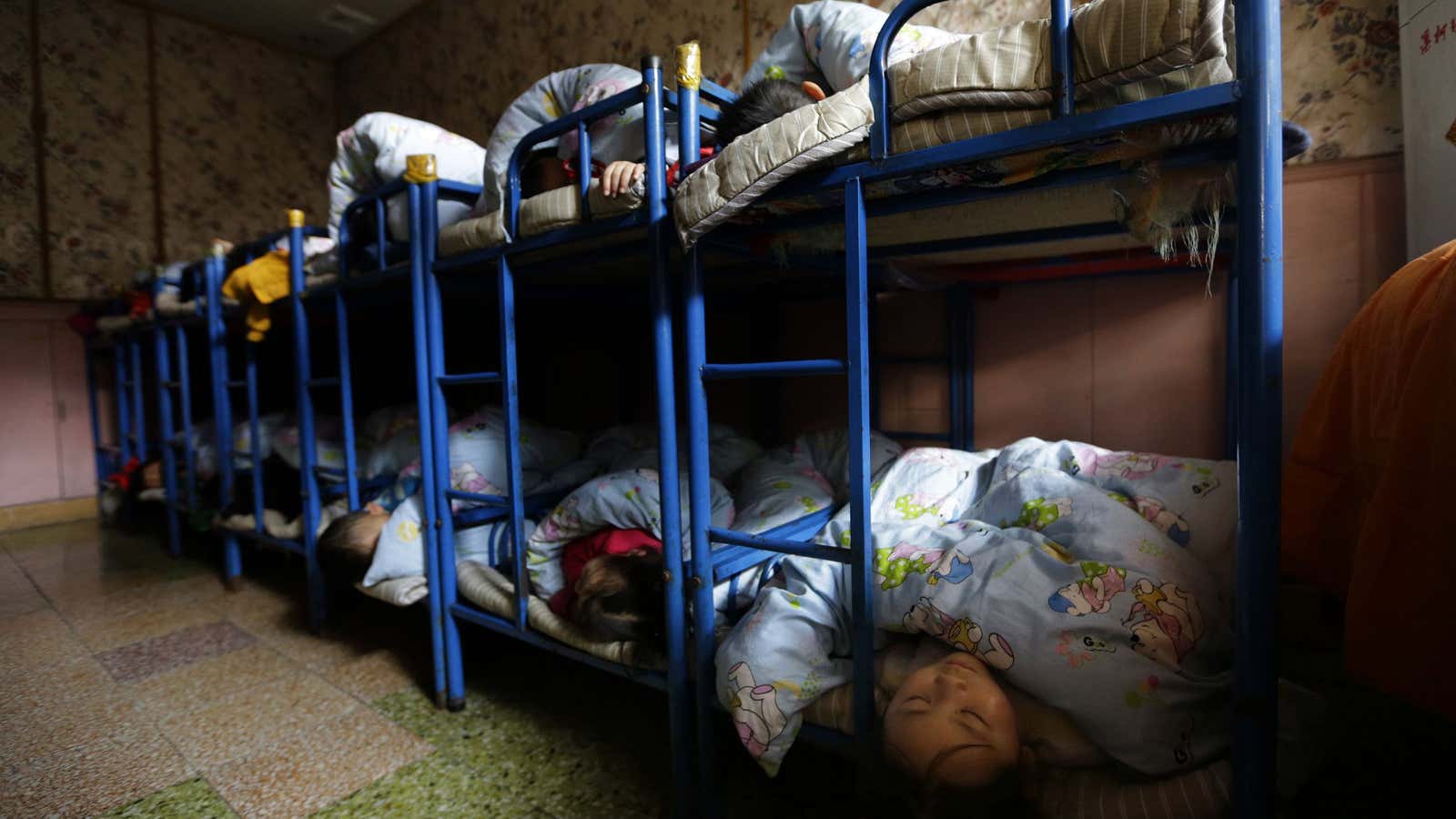For decades, people in China have been divided into two categories: those who hold urban hukou household registration documents, who draw on relatively generous urban social services; and those with rural hukou, who get far fewer benefits and cannot obtain government services in China’s cities. The hukou system has created a two-tier class system in the People’s Republic, and made life miserable for migrants and their families.
With that in mind, yesterday’s announcement that there will no longer be a distinction between ”urban” and “rural” hukou holders may sound like a big deal.
It isn’t. That’s because all Chinese people will still see their government benefits (e.g. public school, health care, social security) determined by the town or city in which their hukou is registered. The new rules only make it easier for formerly rural hukou holders to move to small, backwater cities, not the vibrant mega-cities along China’s eastern coast. In other words, yesterday’s reforms will change life not at all for the vast majority of migrant workers who form the labor supply of the hundreds of Chinese cities.
One of the major changes is that the government is preparing to ease restrictions on the number of people that can claim a hukou in smaller cities and towns. This means Chinese citizens can not only move to and work in a small city (nothing new there), but that they can claim social security benefits equal to those residents born into the city. As for “medium-sized” cities—those with populations between 1 million and 3 million—they too will offer proper social security to a greater number of residents, albeit “in an orderly way.”
But the new regulations don’t grant those same permanent residence benefits to migrant workers in the scores of huge Chinese cities where economic opportunities abound. While in cities between 3 million and 5 million, hukou will only be “appropriately” granted, in those with populations of more than 5 million, the government will “strictly” limit hukou numbers. According to the announcement, a “points system” will be introduced to allow the best and brightest Chinese citizens the chance to settle securely in big cities like Beijing and Shanghai, although specific details have not been released.
As for the impetus for the reforms, they are presumably related to premier Li Keqiang’s much-vaunted “urbanization” plan to ramp up its domestic economy, driving 100 million now-rural residents to cities by 2020. In theory at least, the new policy helps facilitate this by opening up small (and, in real estate terms, affordable) cities to now-rural residents, who will find work and start shopping, buy a car, and boost their local property market. The new policy also helps boost urbanization in the western part of the country, since smaller cities tend to be in those underdeveloped provinces. However, Chinese media have also noted that the regulations closely resemble those mooted by president Xi Jinping in his doctoral thesis.
